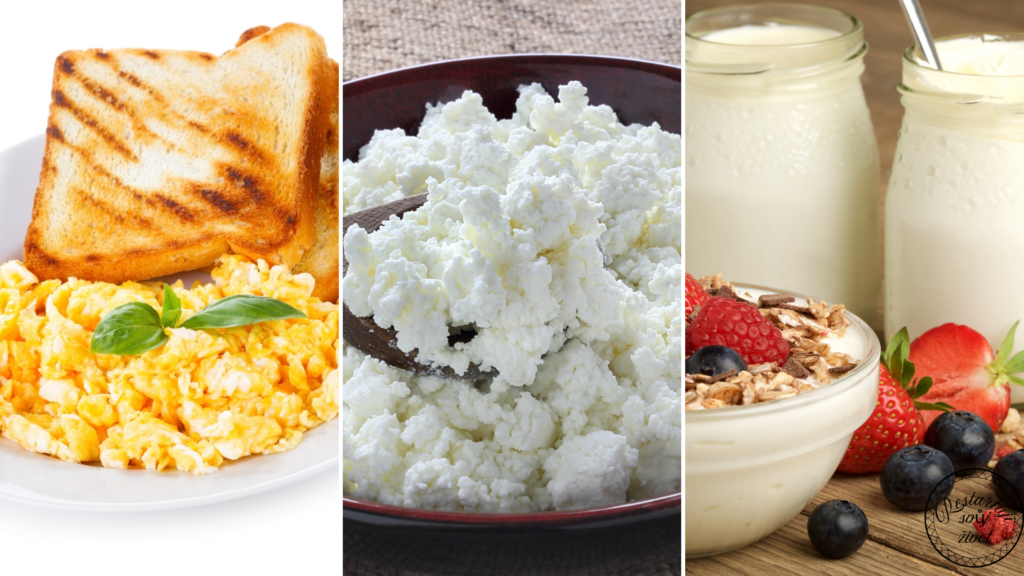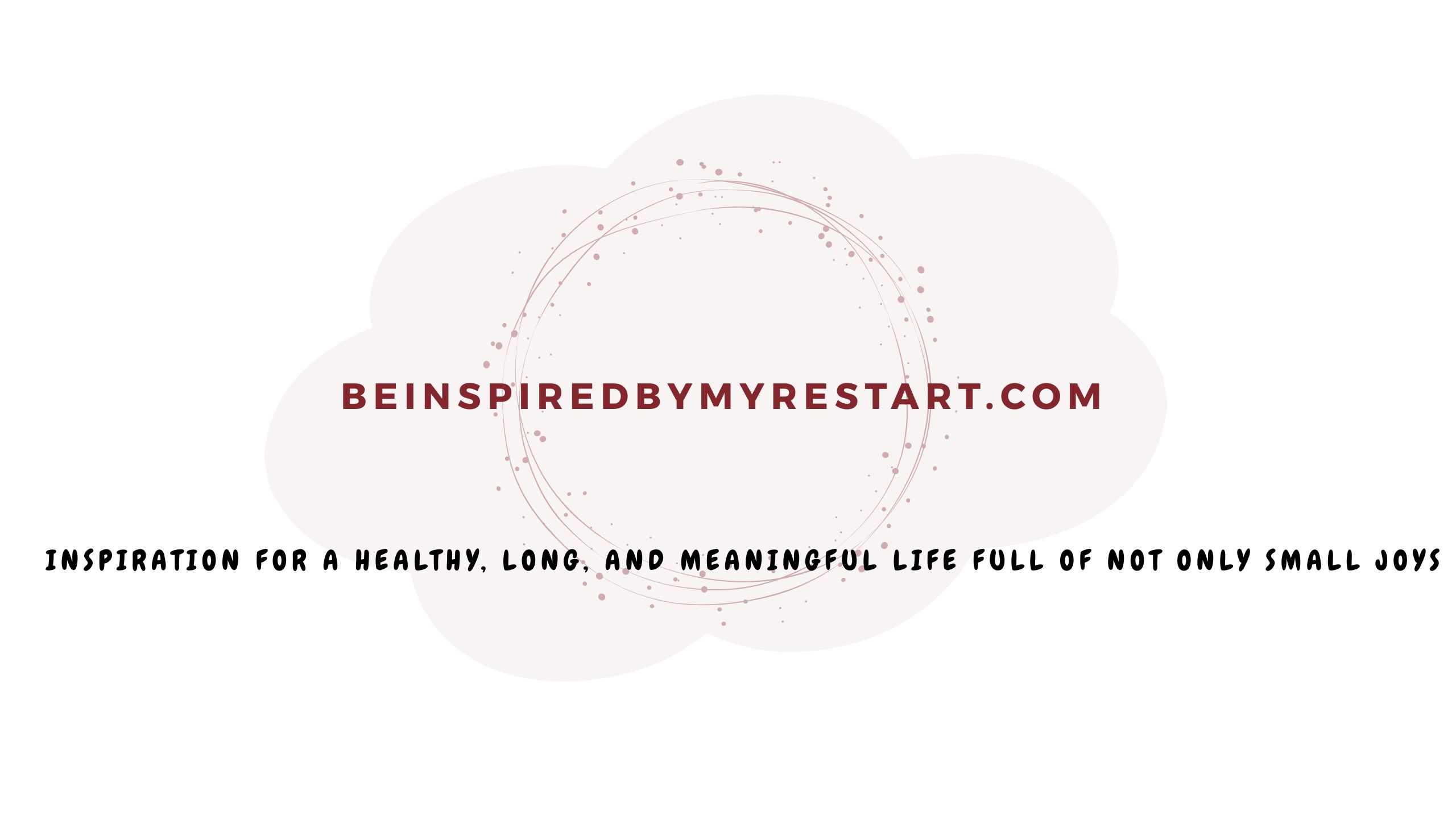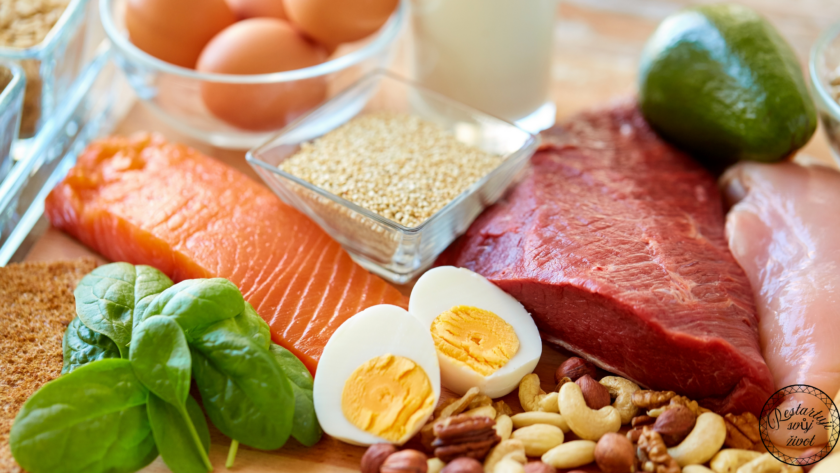Have you ever stopped and thought about whether you’re eating enough protein? It’s the substance that makes up your muscles, skin, hair, enzymes, hormones, immune system – even your DNA repair mechanisms.
We now know that weightlifting is not just for young men. Building muscle is important for all of us, and it highlights the need for sufficient daily protein intake.
Protein is essential for healthy aging because it helps maintain muscle mass and strength. Muscle mass, the main reservoir of protein in the body, is vital for healthy aging, strength maintenance, and regulating glucose levels. Functional muscles significantly reduce the risk of mortality.
After the age of thirty, we lose approximately 10% of our muscle mass every decade. Supporting muscle mass at any age is therefore extremely important. Eating protein-rich foods is the foundation of a healthy diet. Protein powder can be a great way to supplement protein intake, especially if you have a busy daily schedule or need a quick and practical option.

The current official recommendation (0.8 g per kg of body weight) is outdated, and new scientific studies show that we should increase our intake to 1.6–2 g of protein per kg per day.
What Are the Best Sources of Protein?
There are many sources of protein, both from animal and plant-based foods. Here’s an overview of the best ones:
Animal Sources of Protein:
- Meat – chicken breast, beef, pork, turkey, and lamb are excellent sources of protein. It’s best to choose lean cuts that are lower in fat.
- Fish and seafood – salmon, tuna, trout, and other fish are not only rich in protein but also contain healthy omega-3 fatty acids that support heart health.
- Eggs – eggs are a great source of high-quality protein, with egg whites containing almost pure protein and yolks offering additional nutrients.
- Dairy products – milk, yogurt, cottage cheese, and cheese provide both protein and calcium, which is important for bone health.
Plant Sources of Protein:
- Legumes – beans, lentils, chickpeas, and peas are excellent plant-based protein sources. They’re also rich in fiber, which is important for digestive health.
- Nuts and seeds – almonds, walnuts, chia seeds, flax seeds, and sunflower seeds are great for adding protein and healthy fats to your diet.
- Tofu and tempeh – soy-based products are high in protein and are a popular meat substitute in plant-based diets.
- Quinoa – this seed contains all essential amino acids, making it a complete source of protein, which is rare in plant foods.

Protein should be included throughout the day to help stabilize energy levels and support muscle growth and recovery. It’s important to add protein to every main meal and possibly even snacks. Including a variety of protein-rich foods ensures an adequate amount of all twenty essential amino acids. If we aim for a long, healthy life with a lower risk of injury and other diseases, sufficient strength training and protein intake are key.
My Personal Story
I also reflected on the fact that my goal is to age as healthily as possible. Starting to consume more protein and exercise more is something I shouldn’t delay for even one more day. At my current weight of 72 kg, I should be consuming 144 g of protein daily. When I looked back at the past few days, I realized I was getting only between 65–80 g of protein a day. And there’s also a lack of variety in my diet. I’ve mostly been getting protein from meat and cheese, but I haven’t been eating much yogurt, eggs, or legumes. This is something I want to change.
I started with breakfasts that are based on eggs, like scrambled eggs or Turkish-style egg muffins. I also added an afternoon snack – Skyr with fruit and nuts.
Increasing my protein intake and exercising more are now top priorities for my healthspan and longevity. 🙂


